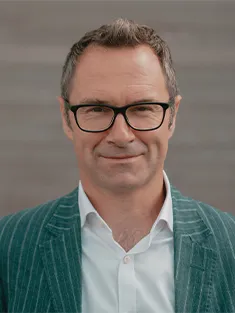Winner: 2023 Tilden Prize
Professor Darren Dixon
University of Oxford
For the discovery, development and applications of iridium-catalysed reductive functionalisation of amides and lactams.

Professor Dixon’s research group strives to invent new molecular tools, catalysts and reactions that enable scientists in academia and industry to make valuable molecules for the first time, or much more quickly than was possible previously. One major theme of their work is to discover and develop new strategic bond-forming reactions from functional groups (groups of atoms bonded in a specific way) that are ubiquitous in the natural world but had previously been considered inert or highly resistant to bond formation. Enabling new reactivity from these abundant molecules can unlock applications that were previously considered impossible.
Biography
Professor Darren J Dixon studied chemistry at the University of Oxford where he received his Masters degree in 1993 and his DPhil in 1997 for work supervised by Professor Stephen G Davies. After postdoctoral work with Professor Steven V Ley CBE, FRS, he joined the faculty at the department of chemistry in Cambridge in 2000. In 2004, he was appointed Senior Lecturer at the University of Manchester and, in 2007, he was promoted to Reader. In 2008, Darren moved to his current post at the University of Oxford where he is Professor of Chemistry and the Knowles-Williams Fellow in Organic Chemistry at Wadham College. Darren’s catalysis and synthetic organic chemistry research focuses on discovering new catalyst-enabled reactivity, developing new (enantioselective) synthetic methodologies, and exploring new strategies for simplifying complex molecule synthesis.
Q&A with Professor Darren Dixon
Tell us about somebody who has inspired or mentored you in your career.
I take a lot of inspiration and energy from the many skilled and dedicated Masters students, PhD students and postdoctoral researchers that I work with and have had the pleasure of working with over the years. It's a genuine honour and privilege to work with such talented people which is why this is such an enjoyable and satisfying career.
What motivates you?
Discovering the best catalyst; developing new and relevant reactions; achieving near perfect selectivity; completing very complex molecular targets.